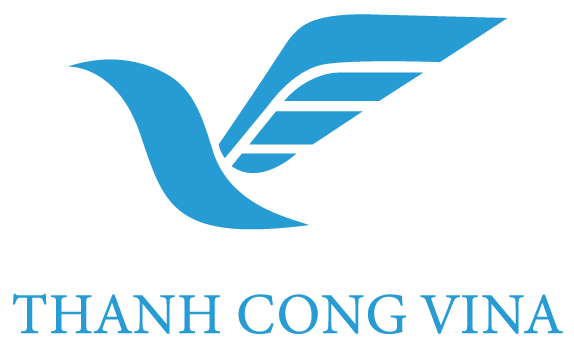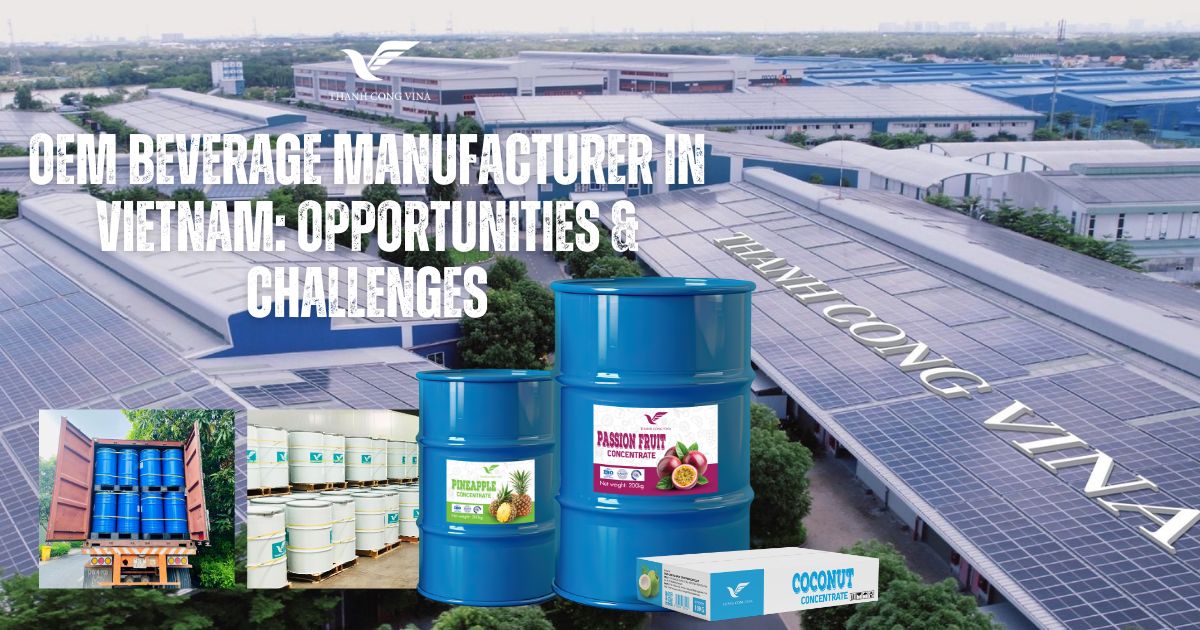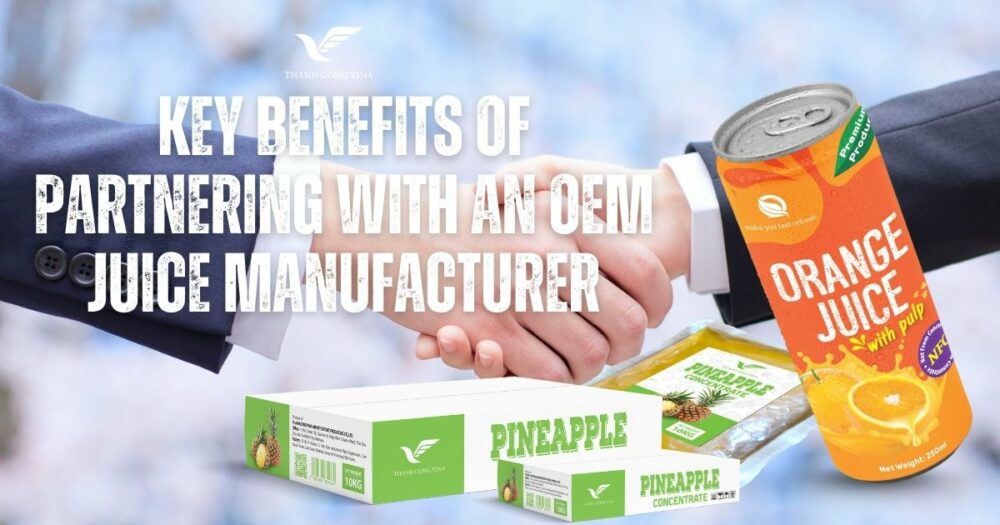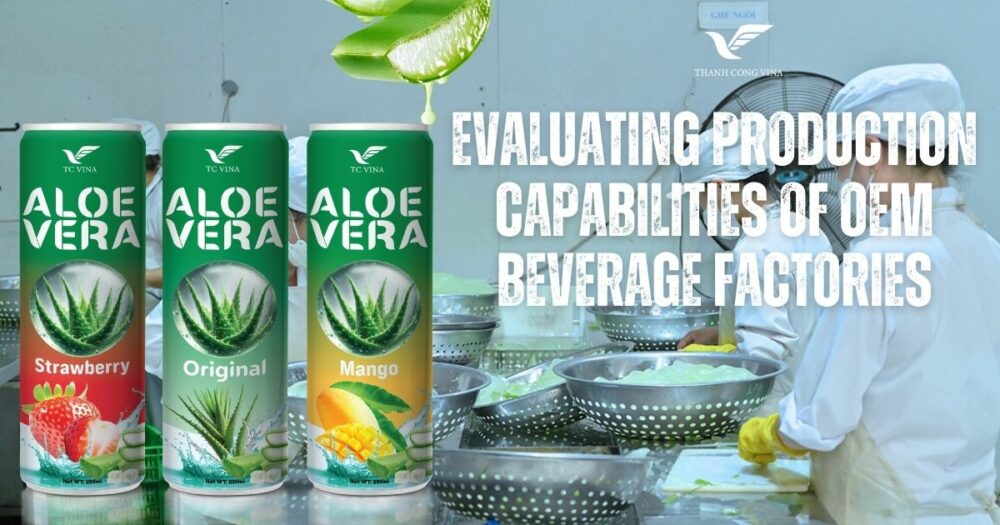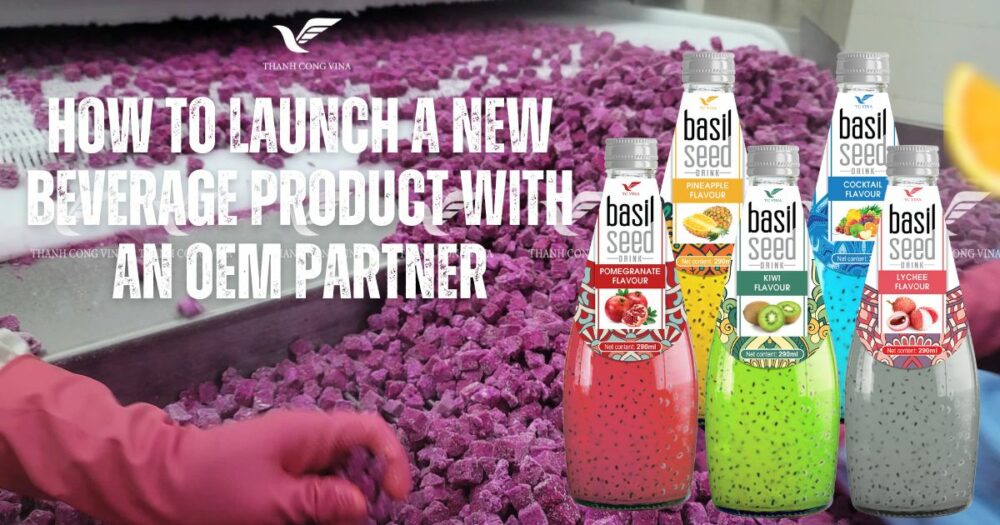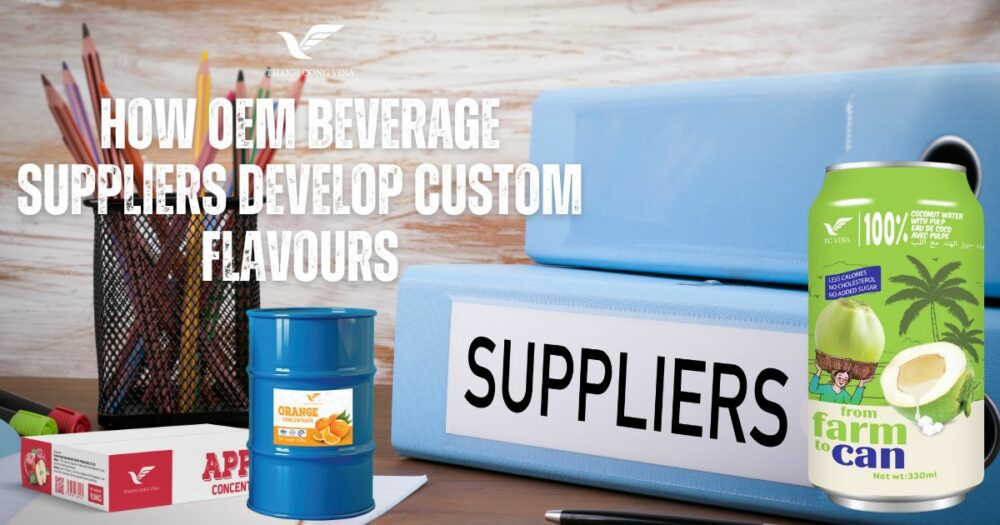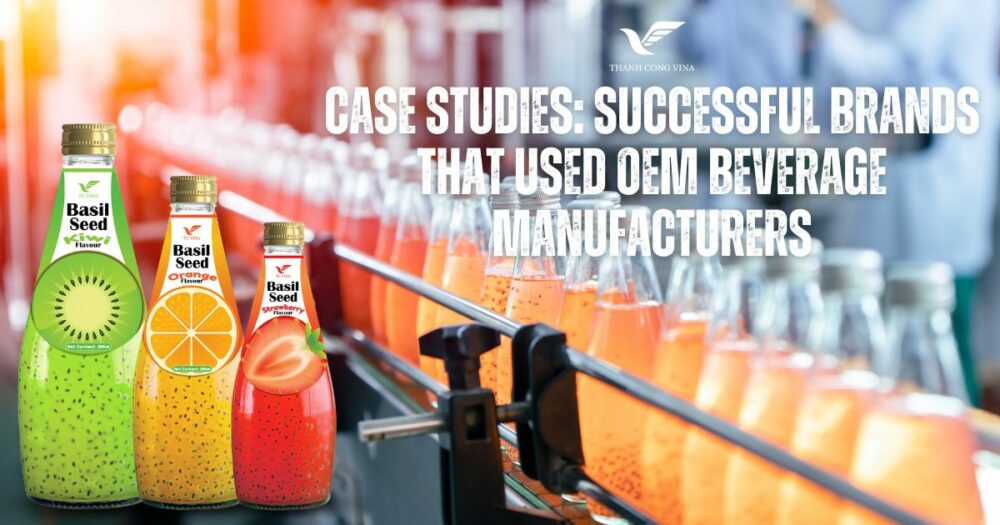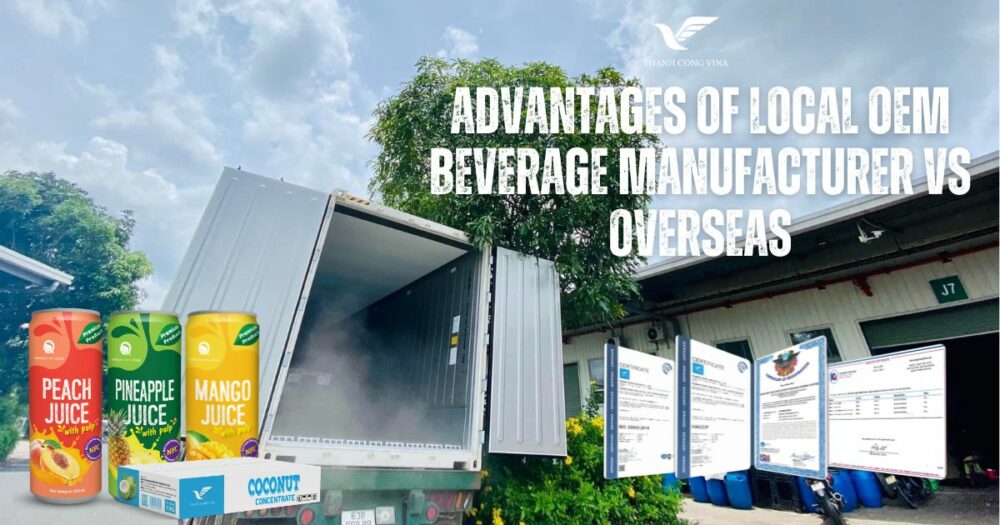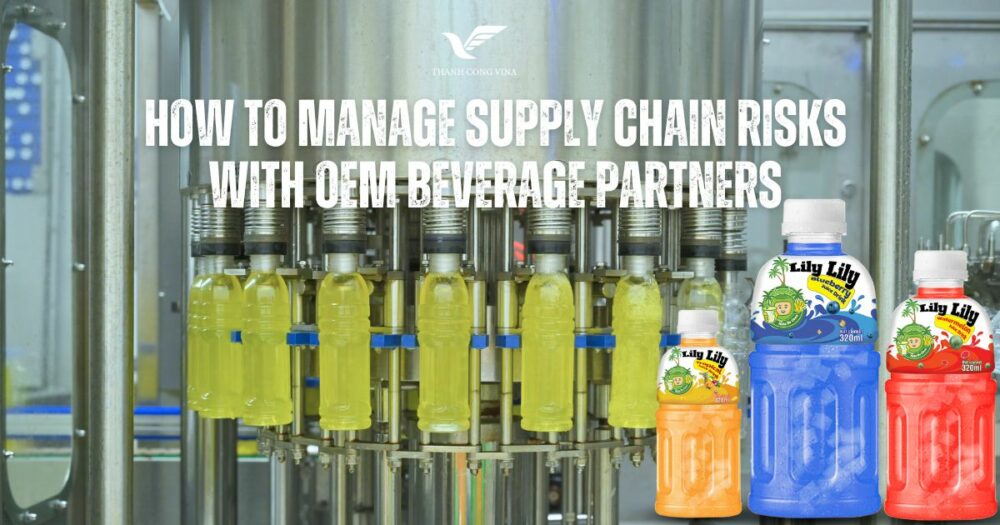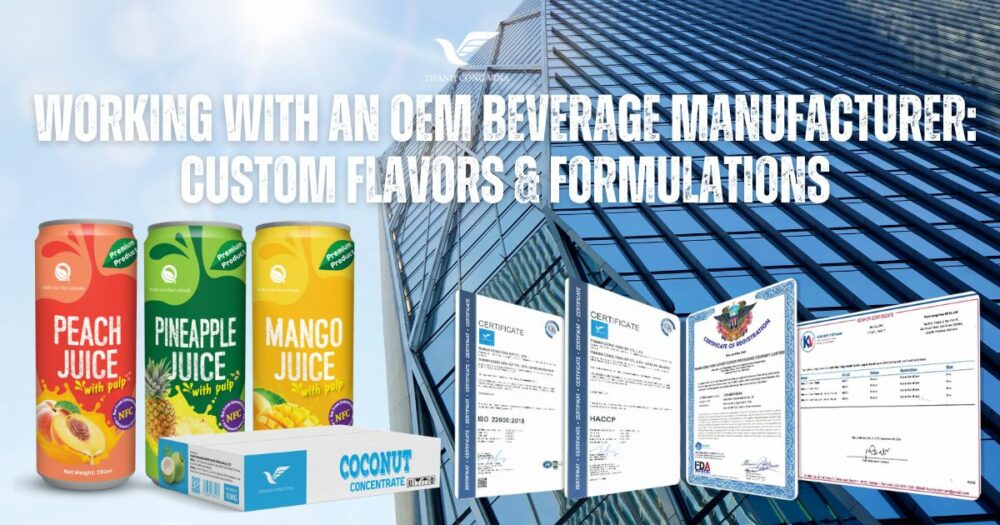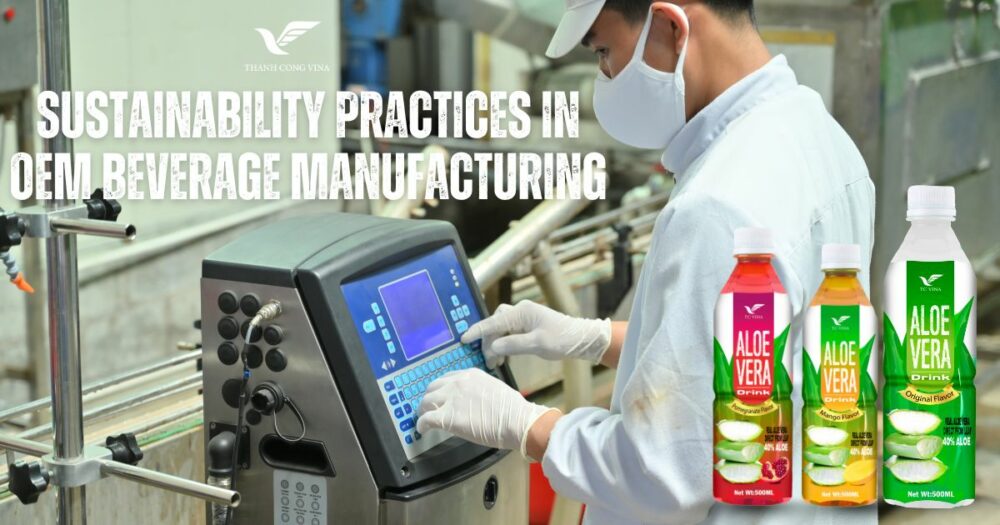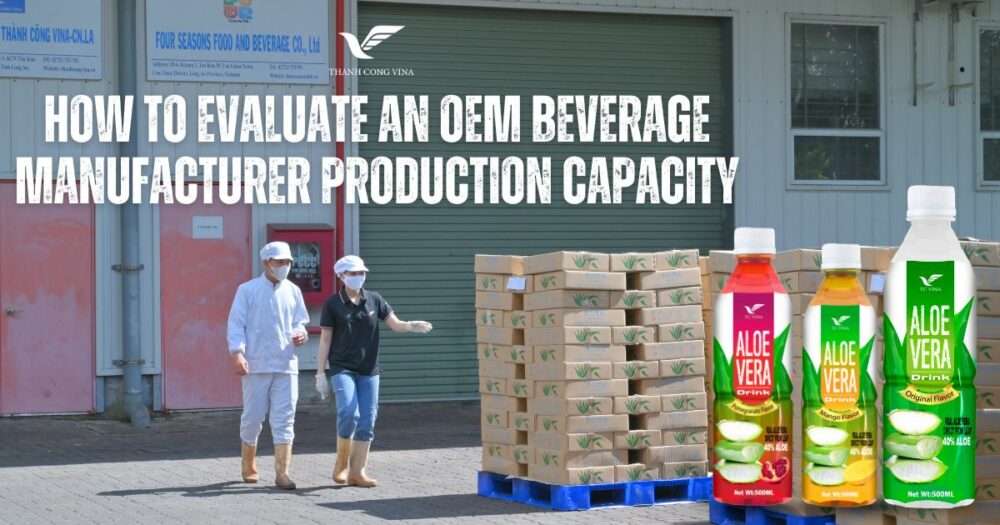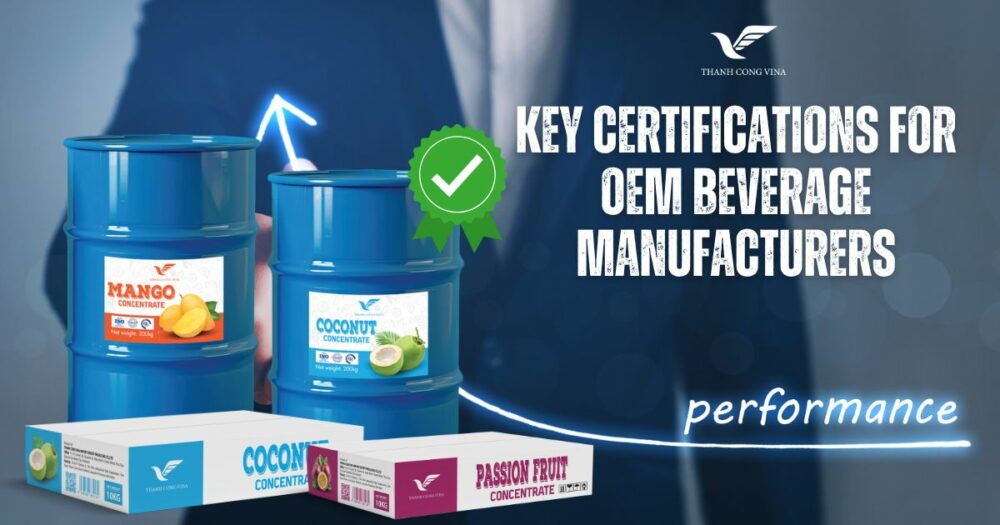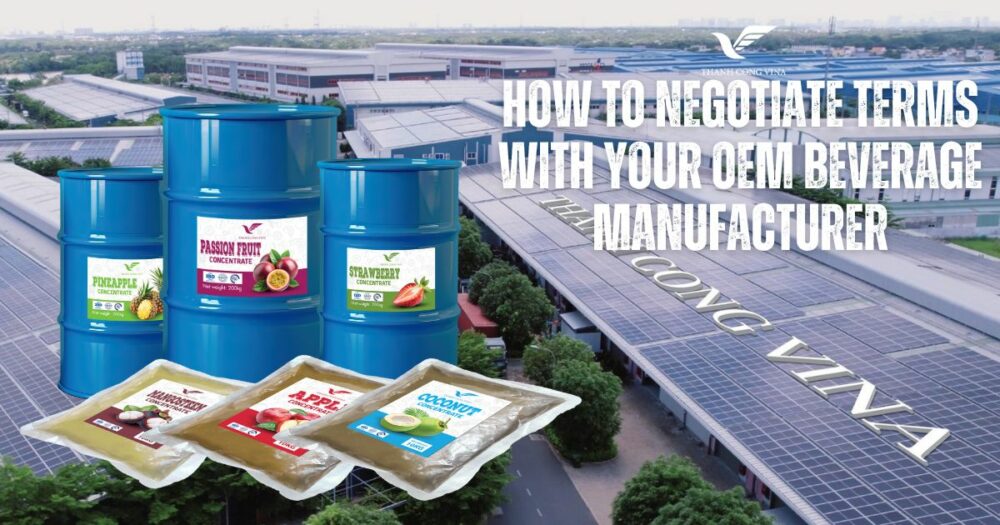Vietnam has become one of the most dynamic manufacturing hubs in Southeast Asia, and the beverage industry is no exception. With increasing global demand for ready-to-drink products, juices, and functional beverages, many international brands are turning to OEM beverage manufacturers in Vietnam for production partnerships. The country offers a unique combination of low production costs, skilled labor, and favorable trade agreements, making it a strategic destination for beverage outsourcing. However, while the opportunities are significant, businesses must also navigate various challenges such as regulatory compliance, quality assurance, and logistics. This article explores both sides of the equation — the opportunities that make Vietnam a rising star in OEM beverage manufacturing and the obstacles that brands must address to ensure long-term success. Whether you’re a startup beverage brand or an established international company, understanding these dynamics is crucial before choosing a manufacturing partner in Vietnam.
1. The Rise of Vietnam as an OEM Beverage Manufacturing Hub
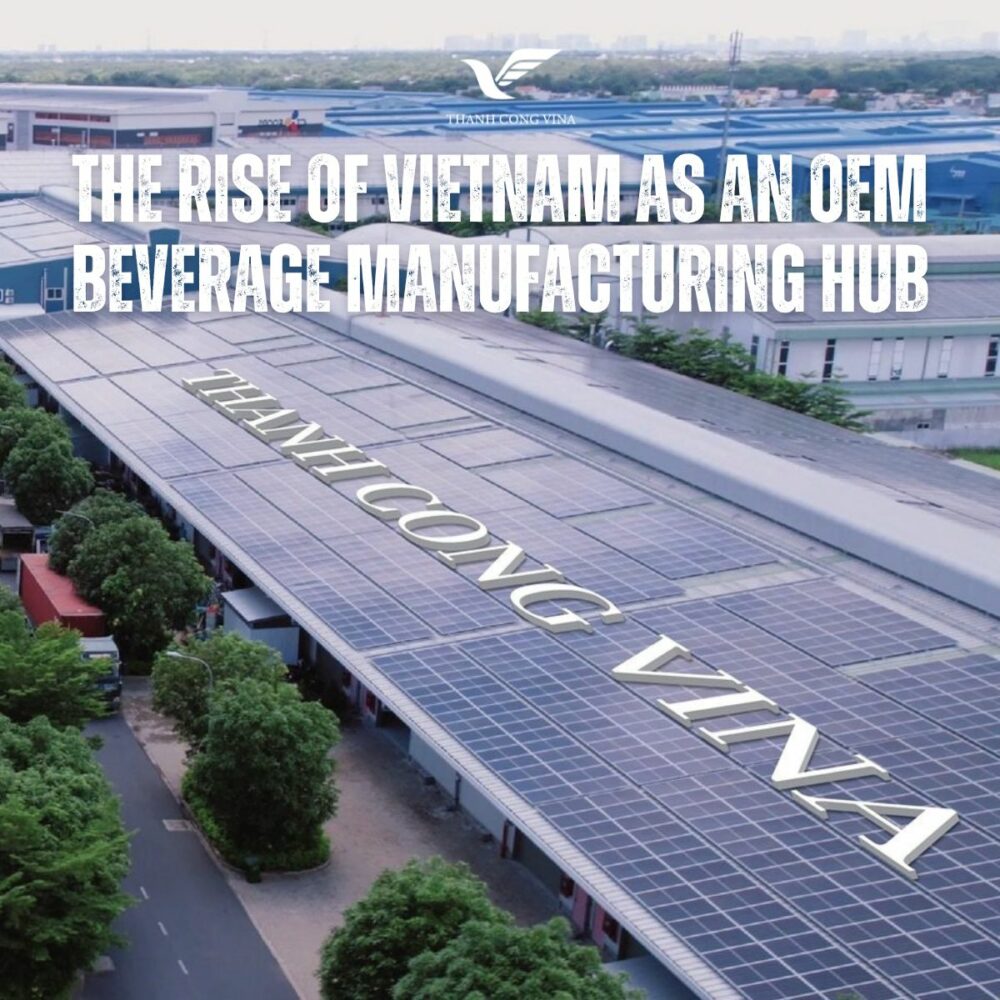
The Rise of Vietnam as an OEM Beverage Manufacturing Hub
Global Beverage Market Growth and Outsourcing Trends
The global beverage market has evolved rapidly over the past decade, driven by increasing consumer demand for health-conscious drinks, functional beverages, and sustainable packaging. As companies expand, many are turning to OEM (Original Equipment Manufacturing) to reduce costs, improve scalability, and speed up time to market. OEM partnerships allow brands to focus on marketing and distribution while manufacturers handle formulation, production, and packaging.
Why Vietnam Is Emerging as a Beverage Manufacturing Leader
Vietnam’s strategic location, modern industrial infrastructure, and growing trade network make it an ideal OEM manufacturing destination. The country benefits from trade agreements like CPTPP, RCEP, and EVFTA, which offer favorable export conditions to major markets including the EU and Asia-Pacific. Additionally, Vietnam’s labor costs remain competitive compared to China, while its quality control standards continue to improve. As a result, both Asian and Western beverage companies see Vietnam as a promising base for long-term manufacturing partnerships.
2. Key Advantages of Choosing an OEM Beverage Manufacturer in Vietnam
Competitive Production Costs
Vietnam offers one of the lowest beverage production costs in Asia without compromising on quality. The affordability of raw materials, energy, and labor contributes to efficient cost structures, allowing brands to maximize their margins. OEM beverage manufacturers in Vietnam can provide full-service production solutions — from formulation and bottling to private labeling — at a fraction of the cost of Western facilities.
Skilled Workforce and Technical Expertise
Vietnam’s workforce is young, adaptable, and increasingly skilled in modern food and beverage technologies. Many OEM manufacturers invest in employee training and automation to meet international standards. This ensures not only productivity but also consistency in taste, quality, and safety — essential attributes in beverage production.
Access to High-Quality Ingredients
Vietnam’s agricultural strength plays a vital role in its OEM beverage manufacturing industry. The country produces a wide variety of tropical fruits such as mango, coconut, aloe vera, and passion fruit — key ingredients for popular juice and wellness drinks. This local sourcing reduces import dependency, ensures freshness, and supports sustainability goals for global brands.
3. The Manufacturing Process in OEM Beverage Production
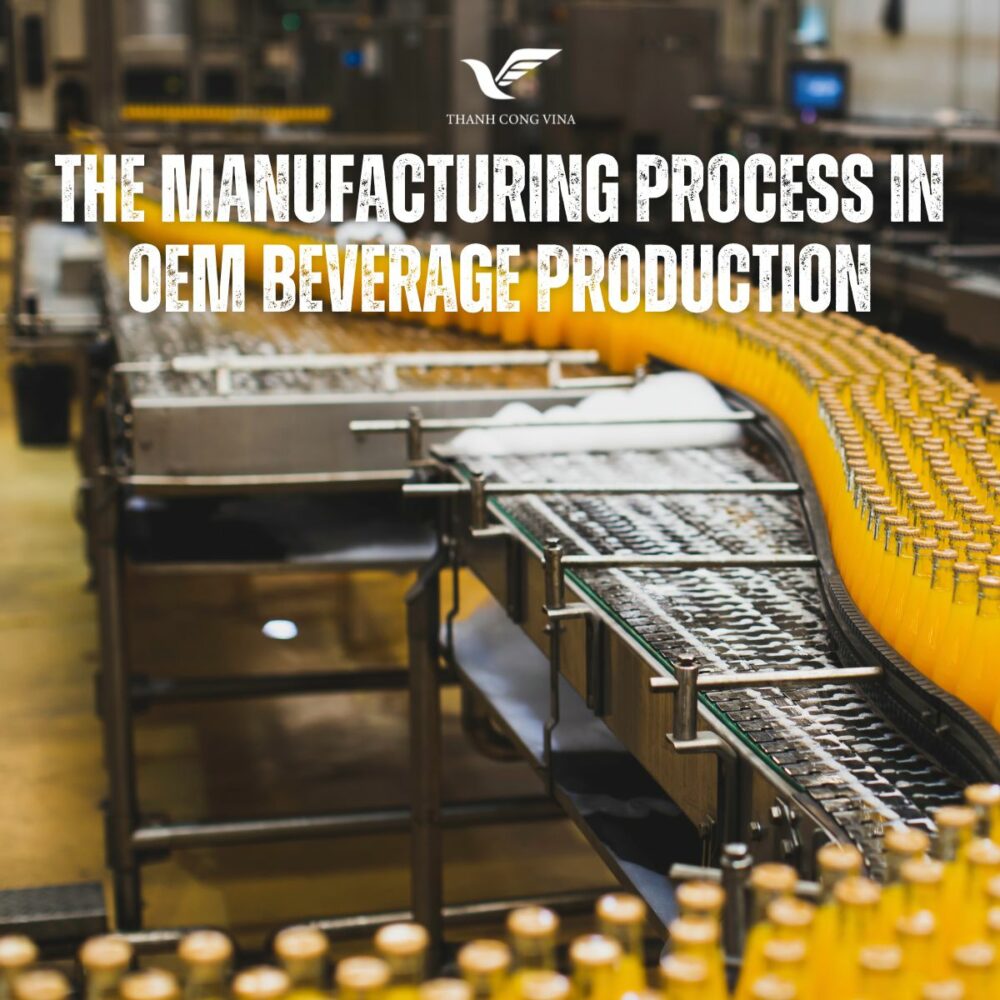
The Manufacturing Process in OEM Beverage Production
Product Development and Custom Formulation
The process starts with product conceptualization, where brands collaborate with the OEM manufacturer to develop a formula that matches their market vision. Vietnamese OEM beverage manufacturers often have in-house R&D departments that create samples, adjust flavors, and test ingredients for stability and shelf life.
Production, Quality Control, and Packaging
After approval, the production phase begins under strict quality control. Manufacturers adhere to standards such as ISO, HACCP, and GMP certifications. Advanced bottling lines, aseptic filling, and automated labeling systems ensure that the final product meets global safety and hygiene requirements.
Export and Distribution Support
OEM manufacturers in Vietnam frequently assist with international logistics, customs documentation, and export regulations. With efficient ports like Ho Chi Minh City and Hai Phong, beverage shipments can reach global markets swiftly and cost-effectively.
4. Opportunities in the OEM Beverage Manufacturing Market
Growing Global Demand for Functional Beverages
Consumers worldwide are shifting toward functional beverages that offer health benefits such as hydration, detox, and immunity boosting. Vietnam’s OEM beverage manufacturers are quick to adapt to these trends by offering production lines for drinks infused with vitamins, probiotics, and natural extracts.
Sustainability and Eco-Friendly Packaging Solutions
Many Vietnamese OEM beverage manufacturers are integrating eco-friendly practices, including recyclable bottles, biodegradable labels, and energy-efficient operations. This aligns perfectly with the sustainability goals of modern beverage brands, particularly those targeting environmentally conscious markets in Europe and North America.
Expanding Export Channels
Vietnam’s network of free trade agreements allows OEM beverage manufacturers to export products to over 50 countries with reduced tariffs. This global accessibility offers brands the flexibility to scale rapidly while maintaining cost efficiency.
5. Common Challenges in OEM Beverage Manufacturing in Vietnam
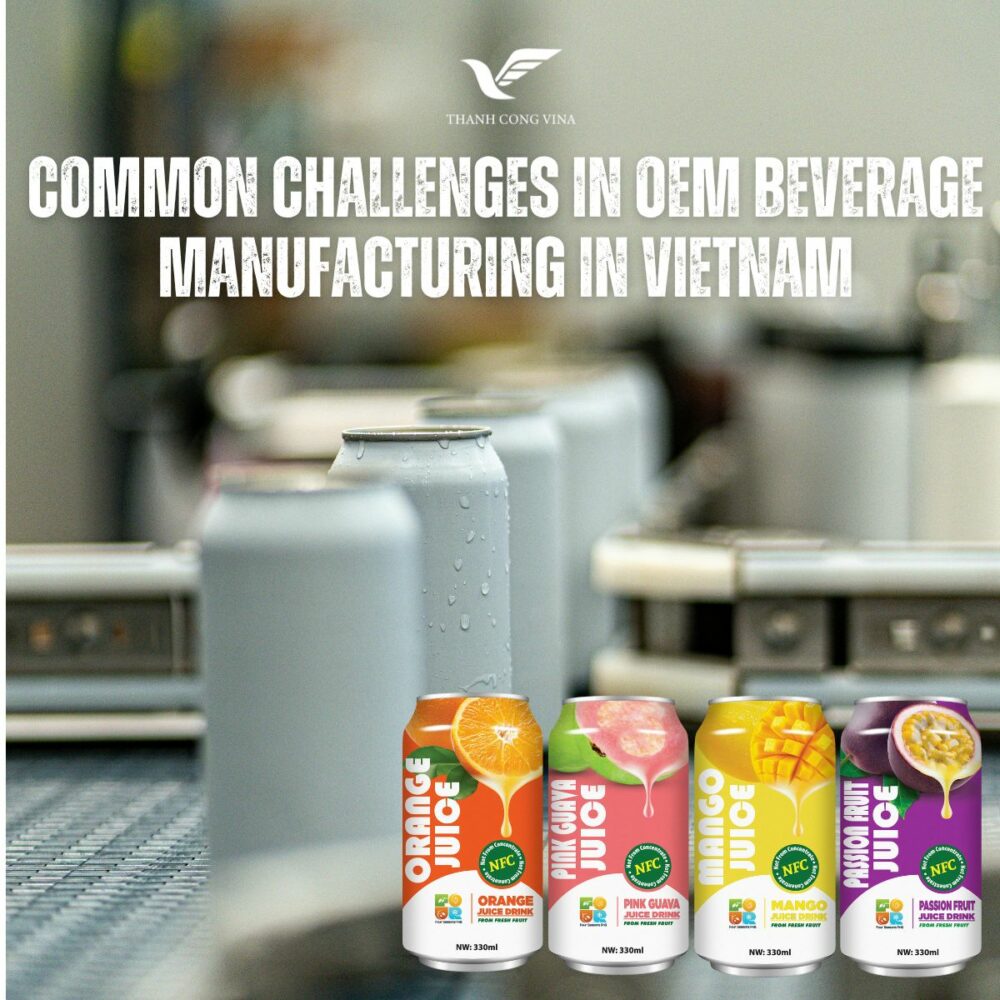
Common Challenges in OEM Beverage Manufacturing in Vietnam
Regulatory and Certification Barriers
While Vietnam has made significant progress in aligning with global food safety standards, navigating regulatory requirements can still be complex. Import-export documentation, ingredient approval, and labeling laws vary by region, requiring careful coordination between brand owners and manufacturers.
Communication and Cultural Differences
Working with a manufacturer in a different cultural and linguistic environment can sometimes cause misalignment in expectations or timelines. Choosing an OEM partner with bilingual staff and transparent communication practices is essential for smooth collaboration.
Quality Consistency and Supply Chain Risks
Maintaining consistent product quality can be challenging, especially during rapid scaling or ingredient shortages. Partnering with OEM beverage manufacturers that have strong supplier networks and advanced quality management systems can mitigate these risks.
6. How to Choose the Right OEM Beverage Manufacturer in Vietnam
Check Certifications and Compliance
Before signing any contract, ensure that the OEM manufacturer is certified with internationally recognized standards such as HACCP, ISO 22000, or FDA registration. These certifications guarantee adherence to hygiene, quality, and safety standards.
Evaluate Production Capacity and Technology
Visit the facility if possible or request a virtual tour. Evaluate the machinery, bottling lines, and laboratory capabilities. A reliable OEM beverage manufacturer should offer scalable solutions that can handle both small batches and mass production.
Review Client Portfolio and Export Experience
Look for manufacturers with proven experience exporting to your target markets. Case studies or client references can provide insights into their reliability and product quality.
7. The Future of OEM Beverage Manufacturing in Vietnam
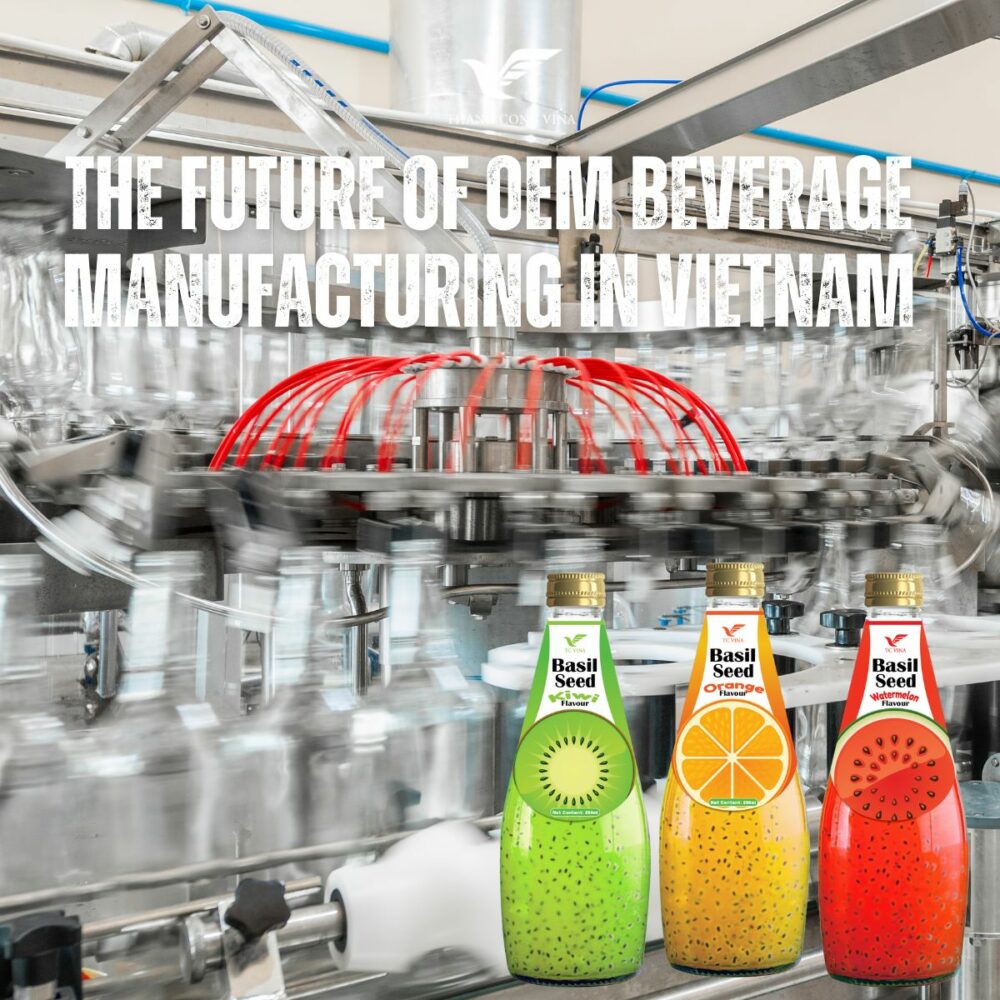
The Future of OEM Beverage Manufacturing in Vietnam
Technological Advancements
Automation, AI-based quality checks, and smart factory management are transforming Vietnam’s beverage manufacturing landscape. These innovations improve precision, reduce waste, and increase production efficiency.
Integration of Health and Wellness Trends
As consumers continue to prioritize wellness, OEM manufacturers are expected to focus more on natural ingredients, low-sugar formulations, and plant-based beverages. Vietnam’s agricultural abundance positions it perfectly for this shift.
Global Expansion and Brand Partnerships
Vietnamese manufacturers are not only producing for export but also forming strategic alliances with international beverage brands. These partnerships foster innovation and enhance Vietnam’s position in the global beverage supply chain.
Conclusion
The rise of Vietnam as an OEM beverage manufacturer powerhouse reflects a growing trend toward efficient, sustainable, and cost-effective production solutions in the global beverage industry. From competitive pricing to advanced manufacturing capabilities, Vietnam offers immense opportunities for brands looking to expand globally. However, success depends on selecting a partner that aligns with your brand’s vision, maintains quality standards, and communicates transparently throughout the production process. Companies like Thanh Cong Vina exemplify this new generation of Vietnamese OEM manufacturers — combining innovation, expertise, and reliability. With a commitment to global quality standards and sustainable sourcing, Thanh Cong Vina continues to support beverage brands worldwide in turning product ideas into reality. As the beverage market continues to evolve, partnering with experienced manufacturers in Vietnam will be the key to achieving growth and long-term success.
